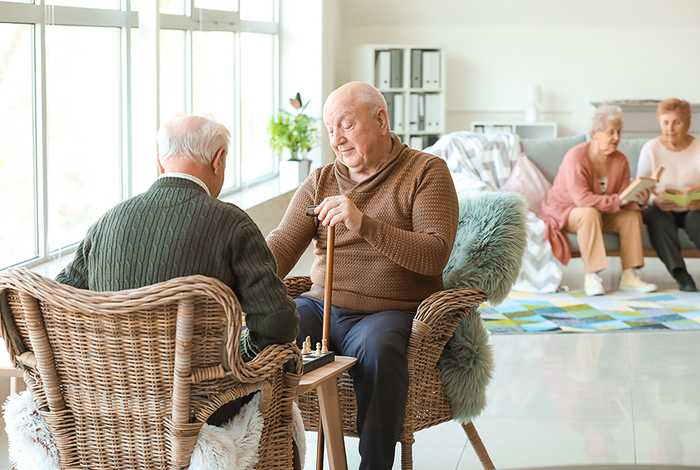Posted by Annie Button
How to recognise if an elderly person is losing the confidence to drive
Being an elderly driver in this day and age isn’t always a bundle of laughs.
From getting hooted at impatiently by another driver to experiencing road rage or even being involved in an accident and struggling to drive again, there are many struggles to overcome.
Maybe you’re more aware an elderly friend or family member has lost their quick reflexes or their senses aren’t as sharp as they once were. There are many reasons why you may recognise that someone’s confidence behind the wheel isn’t quite as good as it should be.
In our modern world, driving has become a fundamental part of everyday life and continuing to master the skill is key to maintaining household routines and personal independence. And for many, it’s more than mere convenience – driving can be huge fun. Who doesn’t love going for a drive on a Sunday afternoon, taking the wife/husband/dog out in the car and just having a nice time?
If an elderly person’s driving confidence has been knocked for some reason, none of the above will be easy to achieve. As their carer, you may even decide it’s not best that they drive at all.
So, let’s take a closer look at some scenarios and see what can be done about them.
Change in a senior person’s driving ability
Mental and physical changes as a result of advancing age can take many forms. Someone’s eyesight might deteriorate, making it harder to see people, things and movements outside their direct line of sight. It may take them longer to read traffic signs or even to recognise familiar locations. They could even be experiencing hearing loss, making it harder to notice road traffic noises that may warn others to get out of the way.
Reflexes may be slower, so elderly people can’t react as quickly as a young person. Arthritis may make it difficult to turn their head, turn the steering wheel or brake safely. Some people might get confused more easily as a result of their attention span being shorter than it used to be. Or perhaps someone you’re looking after could be taking medication that interferes with safe driving.
Whatever the issue may be, ignoring it won’t make it better. It goes without saying that a GP must be a first port of call for any medical problems that affect anyone’s driving and that their hearing and eyesight should be checked regularly.
An excellent way to address confidence issues behind the wheel is to take a practical refresher driving course or arrange a formal driving assessment. There are many different refresher training courses available including some targeted specifically at the concerns of older drivers. The Road Safety Department of their local council may be able to advise or recommend driver trainers.
A driver’s assessment may be an early sign for relatives or carers to step in and assess other areas of a senior’s life. Perhaps it will even signal a time in their lives where they might benefit from the social side and additional support that comes from moving into a retirement community.
Support following a car accident
Being involved in an accident that wasn’t someone’s fault can seriously affect their driving confidence. Chances are that they did nothing wrong and that the accident occurred out of the blue and without warning. And if it happened once, it can happen again, right?
Unfortunately, no one can control other drivers’ behaviour. In practical terms, if someone you care about has been injured in a no-fault accident, you can report it to the police and claim for any damage on their motor insurance. If someone has been hurt and needs support reporting the facts of an accident, or in resolving a dispute, you might prefer to seek legal advice from a professional. On a similar note, if they’ve been involved in an accident that was their fault, the effect on someone’s mental health is likely to be compounded by feelings of guilt, fear and anxiety. They may question their driving ability, develop a phobia towards driving and then feel that the best course of action is to never drive again.
Rebuilding that self-confidence can be a slow process, especially after a traumatic accident. Consider professional counselling to help them feel happier and healthier. You could also try these strategies at home to see if they make a positive difference to their mental health and wellbeing.
Navigate poor weather conditions
Bad weather can have a huge effect on driving confidence. Whether it’s a sudden downpour, snow or black ice on the road, blinding sunshine or high winds, it will take all their concentration to get safely from A to B. Some elderly drivers may be worried about causing an accident simply by being unable to control their car in treacherous road conditions; or they may even have had some near-misses they haven’t mentioned. Elderly people may also worry more about other ‘idiot drivers’ on the road who might involve them in an accident.
Rather than letting worry and anxiety run away with them, elerdrly drivers need to find helpful practical solutions to help them cope, such as:
● check the weather forecast before setting off
● be sensible about any adverse weather risks
● make sure the car is fully equipped, safe and functioning
● fix windscreen wipers, broken fog lights etc, and
● check that tyres are legal and appropriate for the weather.
Adapt to new technology
There is no doubt that the advancement of motoring technology has brought a wealth of safety benefits for us all. But it is also true that getting used to this new(-fangled) tech can be distracting and confusing, which disproportionately affects older drivers.
Take in-car devices such as SatNav and hands-free phone operation, for instance. One sometimes wonders if they really are safer than the way things were done back in the day – with no phone and someone else reading the map! One could also include the use of car parking apps here – using smartphones to pay for parking instead of simply putting coins in the meter – which many local councils have now adopted as the default. What about road users who don’t ‘do’ apps? While it is important for seniors to grasp digital trends in everyday life and receive the support to do so, fast-evolving trends such as parking apps should not be forgotten.
Finally, there’s the proliferation of electric vehicles. These are, of course, a good thing except that they waft around noiselessly at low speeds, presenting a potential danger to pedestrians and other road users. Thankfully, a new EU law was introduced in 2019 making it a legal requirement for EVs to make a sound and be fitted with an acoustic vehicle alert system (AVAS).
For elderly drivers who do struggle with a loss of confidence for the reasons mentioned above or have mobility issues and other health issues that limit driving skills, there are practical solutions that can make a lot of difference and improve their confidence. Remind them, if they don’t like driving in the dark or if there is a heavy rain forecast. When in doubt, don’t go out! Make other arrangements and don’t let them feel guilty about it.
What is the best way to find information about later life care and support?
Growing numbers of people are turning to Autumna for support and information when they want to find out more about their care home, home care and retirement living options.
Let Autumna help you. Why not complete this short form to let us know exactly what type of care is important to you? We’ll then use our database of over 26,000 care providers to filter your search and send you a shortlist of those that can help.
Alternatively email us on info@autumna.co.uk or call our Advice Line on 01892 335 330. Our phone line is open 7 days a week. (8:30am - 5:30pm Mon-Fri, 10am - 5pm Sat, 10am - 4pm Sun).
Other articles to read
Autumna Blog

Older Persons Care Advice
Annuities for care home fees: Everything you need to know
October 23rd, 2025
Learn how annuities for care home fees provide guaranteed income, financial stability, and peace of mind when planning for long-term care costs.

Older Persons Care Advice
Care options for the elderly: What is right for you?
October 17th, 2025
Discover care options for the elderly that fit your needs, from home support to residential care, helping you plan confidently for the years ahead.

Older Persons Care Advice
Are next of kin responsible for care home fees
October 17th, 2025
Find out the truth about care costs. Are next of kin responsible for paying care home fees? Learn who pays, exceptions, and how to plan ahead.






